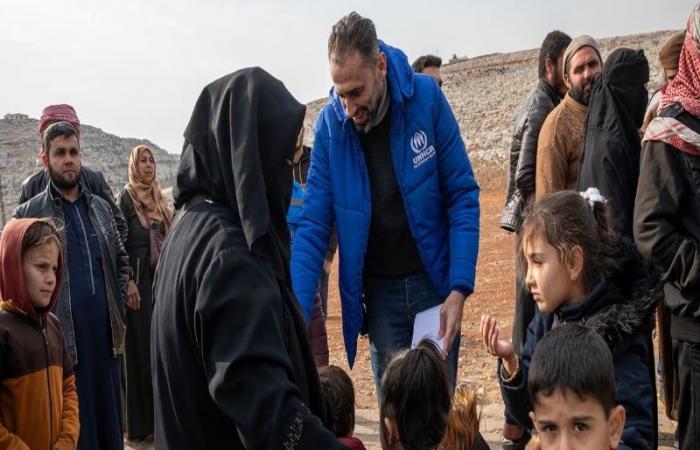The United Nations refugee agency (UNHCR) has indicated that more than 115,000 people have returned to Syria from countries such as Turkiye, Jordan and Lebanon since December 8, the date of the fall of the Assad regime.
The information is based on public statements by host countries, contacts with immigration services inside Syria and border surveillance by the UN agency and its partners.
According to the UNHCR, the Turkish Interior Minister reported that 35,113 Syrians had returned home voluntarily.
Demographic change of Jordanian returnees
For its part, Jordan noted that more than 22,000 people entered Syria through its territory, of which 3,100 were registered refugees.
UNHCR teams noticed a change in the demographics of returnees from Jordan this week, with more women and children returning rather than men traveling alone.
“During interviews, some families stated that the head of the family would stay in Jordan for several more months in order to earn money that will support the family’s reintegration in Syria before joining them,” the agency said.
Displaced in Syria
Around 664,000 people remain displaced across Syria, mainly in Idlib and Aleppo governorates. The majority, more than three-quarters, are women and children.
In addition, nearly 486,000 internally displaced people returned to their regions of origin, mainly in the governorates of Hama and Aleppo.
“The prevailing insecurity – including armed clashes, increased criminal activity and unexploded ordnance – continues to pose challenges for civilians and will likely influence the potential decision to return home faced by Syrians living outside the country,” UNHCR explained.
Determine needs
The agency continues to collaborate with interim authorities, including a meeting held last Sunday with the governor’s office in Daraa to discuss humanitarian needs there.
UNHCR also continues to visit active border crossings, monitor processes and listen to returning Syrians about their priorities and needs.
Additionally, the rehabilitation of 200 partially damaged houses in rural Damascus has resumed, and is expected to be completed by the end of the month.
Basic necessities and winter items were also distributed to returnee families in the governorates of Damascus, Homs and Idlib, as well as to internally displaced persons living in collective centers and unfinished buildings in the governorates of Ar- Raqqa and Al-Hassakeh.
Returns from Lebanon
Meanwhile, the number of Syrians leaving Lebanon through official border crossings remains “weak but stable”.
These trips are mainly through the Masnaa border crossing and include people who may make short trips to assess the situation in Syria.
Over the past 10 days, a maximum of 100 to 200 people have been in no man’s land, UNHCR said, either being processed to enter Lebanon or en route to Syria.
A small number of families stranded over the New Year period were assisted by UNHCR and the United Nations Children’s Fund (UNICEF) while they waited for their entry applications to be processed.
Iraq: crossings from the Kurdistan region
The movement of Syrians through the Peshkabour border crossing with the Kurdistan region of Iraq also continued, reaching approximately 300 to 400 per day.
Most people crossing the border into Iraq are of Kurdish ethnicity and say they are coming to the Kurdistan Region temporarily for family visits or using it as a transit point – planning to return to Syria via following.
Over the past three weeks, 948 Syrians returned permanently through official procedures, and 105 were refugees registered with UNHCR.
Request for help in Egypt
In Egypt, UNHCR continues to see a higher than average number of requests for case closure from Syrian refugees.
Between December 8 and 29, a total of 1,448 closure requests involving 2,695 individuals were submitted, an average of 97 per business day compared to the average of seven closure requests in November.
UNHCR Egypt continues to provide psychological support to Syrians seeking information on the situation in their home country.
The most worrying question is whether the agency can provide repatriation assistance, whether fines for overstay and residence permits issued late can be waived upon exit, whether return to Syria is safe and what routes should be avoided.






